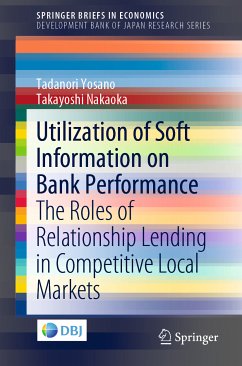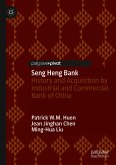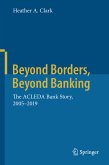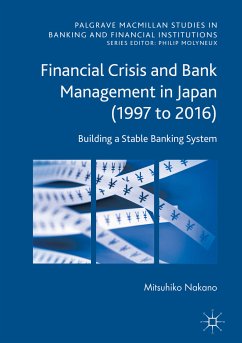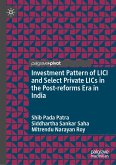This book explores the effects of soft information utilization in the decision process for lenders, especially concerning small and medium-sized enterprises (SMEs) in regional markets. This study is one of the first to use questionnaire survey data from lender representatives, and analyzes the relationship between the financial metrics of a lender's performance and soft information factors in inter-bank competition. The authors' empirical results suggest that utilizing soft information allows banks to attain a more precise lending decision.
The Financial Services Agency in Japan introduced an action program in 2003 that requires regional banks to shift from transaction banking to relationship lending. Against that background, this book examines the influence of relationship lending on a lender's performance. This study found that relationship lending allows lenders to charge a higher premium to counteract the high risk involved with SMEs. The book also examines how relationship lending affects lending performance in inter-bank competition. The conclusion is that, even though inter-bank competition has negative effects, a bank in a competitive local market can acquire an informational advantage to limit its own loss.
This book categorizes three soft information factors: organizational systems, networks or alliances/partnerships, and business/management leadership based on survey data. The authors' findings suggest that information production, especially network and business/leadership information, plays an essential role in promoting a bank's profitability. These effects are strong even when banks face high inter-bank competition. Relationship lending not only improves bankers' lending techniques, but also fosters and enhances their community knowledge and enables them to survive in a highly competitive market.
The Financial Services Agency in Japan introduced an action program in 2003 that requires regional banks to shift from transaction banking to relationship lending. Against that background, this book examines the influence of relationship lending on a lender's performance. This study found that relationship lending allows lenders to charge a higher premium to counteract the high risk involved with SMEs. The book also examines how relationship lending affects lending performance in inter-bank competition. The conclusion is that, even though inter-bank competition has negative effects, a bank in a competitive local market can acquire an informational advantage to limit its own loss.
This book categorizes three soft information factors: organizational systems, networks or alliances/partnerships, and business/management leadership based on survey data. The authors' findings suggest that information production, especially network and business/leadership information, plays an essential role in promoting a bank's profitability. These effects are strong even when banks face high inter-bank competition. Relationship lending not only improves bankers' lending techniques, but also fosters and enhances their community knowledge and enables them to survive in a highly competitive market.
Dieser Download kann aus rechtlichen Gründen nur mit Rechnungsadresse in A, B, BG, CY, CZ, D, DK, EW, E, FIN, F, GR, HR, H, IRL, I, LT, L, LR, M, NL, PL, P, R, S, SLO, SK ausgeliefert werden.

